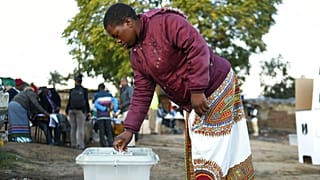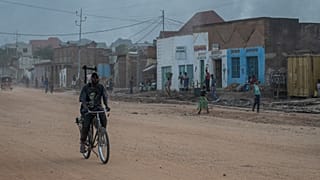Cameroon
Cameroon is still grappling with disposable plastic bags, almost two years after it banned their use.
The disposable plastic bags were outlawed in April 2014 after the government also barred their sale and manufacture.
A few years ago, the ministry of environment calculated that Cameroon dumped more than six million tons of plastic waste annually.
Experts say that plastics can stay in nature for up to 1,000 years without breaking down, rendering soils infertile, blocking water ways, choking wildlife and endangering human health.
To curb their continued use despite the ban, the Douala special unit for protecting the environment launched an impromptu campaign against the re-circulation of the plastic bags after their value sky rocketed.
But traders in the country still believe that the use of other alternatives is expensive for their business.
“When we get for example, fish, the packaging goes for 50 FCFA. They are packed in cardboard boxes and it is not convenient,” says Jacqueline Owona, a housewife.
The circulation of plastic bags is more common in the rural areas than in urban centres, where bakeries and supermarkets have adopted the use of alternative sources.
The Cameroonian government has in the meantime said it is committed to co-operate with players wishing to provide alternative packaging solutions to the country.











01:05
Morocco coach rejects allegations of AFCON refs bias for the host team
01:16
Cameroon and South Africa set for high-stakes AFCON round of 16 clash
Go to video
Lions, Eagles and more: AFCON 2025 teams and their nicknames
02:43
AFCON 2025: Group F battles intensify as qualification beckons
00:45
AFCON 2025: Cameroon 'spiritually ready' to face Gabon in first match
11:17
African central bank governors revive vision for continental monetary integration {Business Africa}